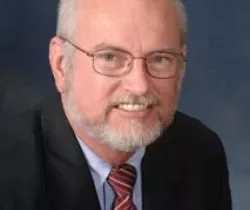Charles Olentine

Charlie Olentine, CEO of Consult NC Inc, has over 25 years experience in B2B publishing and from 2004 to 2016 managed the Top 50 show - International Production & Processing Expo. colentine@consult-nc.com

“The minute you think you've got it made, disaster is just around the corner.” – Joe Paterno
It has been almost a year since I passed on the management responsibilities of the International Production & Processing Expo (IPPE) to my successor. It was 7 a.m., and the 2016 show was due to open at 10 a.m. I was in the show office when I hear the plaintive cry from my successor to follow him. As we entered the exhibit hall, we see a huge waterfall coming from the ceiling. A tube in the facility’s HVAC had frozen the night before and cracked, with the resulting 20-minute downpour soaking one of the main aisles. Welcome to the trade show business!
To the credit of the facility, the GSC, security and the staff, a well-coordinated cleanup and repair kicked into gear with the show opening on time with little evidence of the disaster (except for some still-wet carpets in several exhibitors’ booths).
Like it or not, this type of challenge is far more frequent than we think, be it weather, an Act of God, fire, demonstration pools bursting, therein creating floods, or faulty sprinkler systems. To react quickly and effectively requires a detailed written disaster plan. But it entails more than that.
Reflecting on another IPPE show (2014), we had the opportunity to implement our crisis management plan and found that nothing is ever as simple as you might think. To set the stage, a snow storm was forecast to hit Atlanta on the first day of the show, but the main effects were anticipated to bypass the downtown area. At about noon I was looking outside to see a number of our Latin American attendees experience snow firsthand. What was happening in the background was that the city and state governments were in the process of closing all its offices and releasing schools at the same time. What ensued was to later be called “Snowmageddon.” The roads started to freeze and the impact of the entire city heading home at the same time led to epic traffic jams wherein people were stuck in their cars, many of whom sat for more than 20 hours.
The show was lucky. The vast majority of the attendees were onsite and things were running smoothly in the beginning. What developed later though was a classic case of us, the organizer, not assimilating enough information about what was happening and an inherent inability to get what information we had to the exhibitors and attendees. Do we cancel the Welcome Reception? How do we handle the bus routes? Is the show cancelled? We deliberated and came up with solutions, but our means of communicating to the attendees and exhibitors left a lot to be desired.
The next day the city was essentially shut down. Restaurants were few and far between and support staff could not make it back to the Georgia World Congress Center, therein creating shortages in food service during the show, which still went on. We were lucky in that many of the hotels in our show block were within walking distance for a lot of the attendees.
The bottom line was we mushed through the show and it was successful in spite of the challenges. The facility personnel, general contractor, convention bureau and vendors pooled resources and manpower to get us through. Kudos to those staff personnel at the Georgia World Congress Center and Levy (the food service provider) who spent the night at the facility sleeping on the floor or wherever there was a semi-comfortable retreat. Also, we had a sympathetic attendee base who were very understanding.
In the aftermath of the event, the city, state, facility and convention bureau developed an in-depth communications plan for the event industry to cover weather and other adverse circumstance challenges. Two weeks after our show another snow storm hit with an extremely large show coming into the city. The plan devised by the city went into action and the event went off without a hitch.
The bottom line is that if you are in the trade show business eventually you will be faced with a serious challenge. Having a written disaster plan is mandatory, but the key to implementing that plan is to have your communications channels clearly outlined and have a response mechanism utilizing social media, emails, text messaging, hotel information boards and every available communication resource. Needless to say, IPPE implemented all of the above communication channels.
Trade show managers need to believe in the one true universal law:
Murphy’s Law: “If anything can go wrong, it will.”

Add new comment